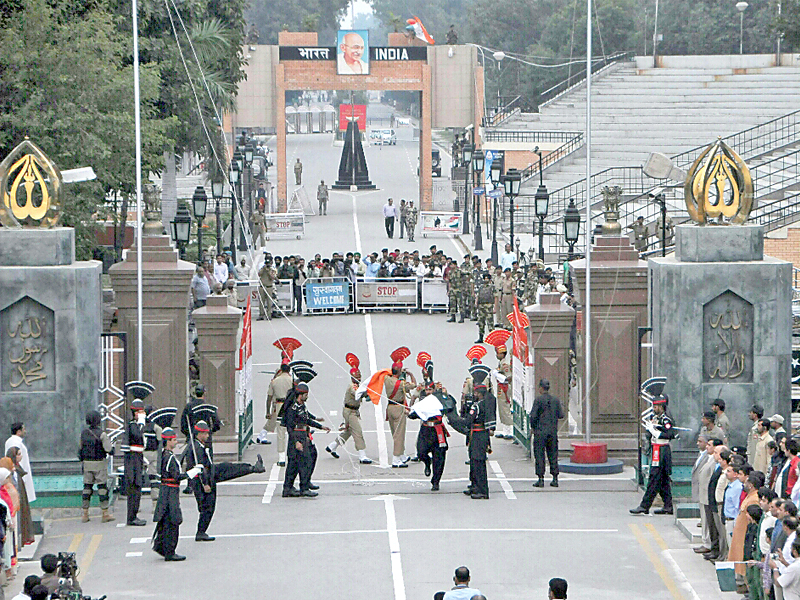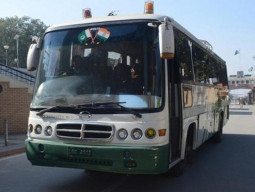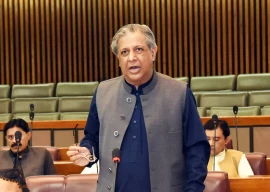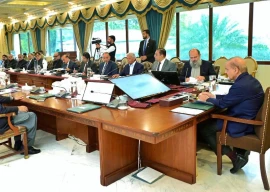
LAHORE: Even after 75 days since the horrific bomb blast at Wagah border, the business community is struggling to smoothly make shipments to India as the authorities have reduced trading time by three hours due to security concerns.
“Trading activities are suspended for three hours daily – from 2pm to 5pm – during the flag-hoisting ceremony, which is hurting the already troubled bilateral trade between Pakistan and India,” said Lahore Chamber of Commerce and Industry’s Pak-India Trade Promotion Committee Chairman Aftab Ahmed Vohra, while talking to The Express Tribune.

This halt in transportation has hurt the trade volume because the number of trucks crossing the border from both sides, according to Vohra, has been curtailed from around 300 to 350 to a mere 150.
Normal trading hours were from 9am to 6pm, which have been reduced to six hours only.
The decision by the authorities to provide a separate gate for trading purposes was well received by the business community, but movement even from that gate is shut down during the flag-raising ceremony in the aftermath of the bomb blast.
“We have requested the authorities to extend the trading hours after six to fill the gap, but they don’t allow us,” said Vohra. A majority of the businessmen on both sides of the border are of the view that bilateral trade is underperforming. However, they also agree that terror threats are a major concern for the traders.
The current annual bilateral trade is hovering around $2.4 billion, however, illegal trade and exchanges via third country are around $10 billion as estimated by different research bodies, which say the removal of trade hurdles can almost triple the volume of commerce.
“We try to create and ensure a friendly atmosphere between the business groups of both countries, but a single incident always ruins our efforts and pushes us backward,” said soybean importer Abdul Basit.

“No one can expect to have uninterrupted bilateral trade until the issue of terrorism is resolved, which is even more damaging than cross-border firing,” he said. “In Pakistan-India ties, politics can never be kept out of trade.”
Quantitative damage
The business community was hopeful that trade will grow at an annual pace of 10%, but according to Vohra, the figure is around a measly 2% to 3%.
There is a need-based transportation of goods via land due to reduced costs. Currently, out of 6,000 items, Pakistan can only import 138 through land route. From these 138, priority has been given to vegetables and fruits.
Imports from India for the year 2013-14, according to the Pakistan Economic Survey, stood at Rs137.1 billion. However, the figure is 22% lower than the corresponding period, showing an increasing trend of exports to India.
“Exports are rising which is a good sign and shows the maturity in bilateral trade,” said Vohra.
The writer is a staff correspondent
Published in The Express Tribune, January 19th, 2015.
Like Business on Facebook, follow @TribuneBiz on Twitter to stay informed and join in the conversation.
COMMENTS (1)
Comments are moderated and generally will be posted if they are on-topic and not abusive.
For more information, please see our Comments FAQ


































































These matters are further discussed in the following reports by SDPI. These have already been submitted to the Ministry of Commerce in Islamabad.
India - Pakistan auto sector trade: http://www.icrier.org/pdf/WorkingPaper293.pdf
India - Pakistan pharmaceutical trade: http://icrier.org/pdf/WorkingPaper291.pdf